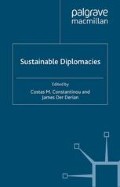Abstract
Among the many stories of people crossing to the other side of the divided island of Cyprus (following the opening of the barricades after almost three decades in April 2003), a particular event struck me as an exemplar of reconciliation at the human level. Returning to a church that had been turned into a mosque, a bitter symbol of occupation and ethnic cleansing, a Christian Greek-Cypriot man headed for a charged encounter with the Other. The imam in place, however, welcomed him as a most honoured guest, unfolding a red carpet so that he could walk inside the church/mosque without removing his shoes. Behind a white curtain, he unveiled the altar where the Christian relics were safely kept for the return of the dispossessed. Occupation and religious exclusivity aside, it was clear that the unused church was carefully modified into an interim mosque. The imam explained his past and present actions through a spiritual genealogy, for ‘We are all descendants of Adam and Eve, all brothers, one body’ meaning that it was his and indeed everyone’s foremost responsibility, irrespective of religion and ethnicity, ‘to love, respect and help each other as our Creator intended’. Capturing everything on camera and deeply moved by the event, the Greek-Cypriot man admitted to an epiphany, ‘a feeling that Cyprus expanded’ and became more accommodating (Demetriou, 2003).
Access this chapter
Tax calculation will be finalised at checkout
Purchases are for personal use only
Preview
Unable to display preview. Download preview PDF.
References
Akhtar, Sayyid Wahid (1997). ‘The Islamic Concept of Knowledge’, Al-Tawhid: A Quarterly Journal of Islamic Thought and Culture, 2(3). Retrieved 8 September 2005, from http://www.al-islam.org/al-tawhid/islam-know-conc.htm.
Badiou, Alain (2003). Saint Paul: The Foundation of Universalism. Stanford, CA: Stanford University Press.
Berman, Maureen and Johnson, Joseph (Eds) (1977). Unofficial Diplomats. New York: Columbia University Press.
Butterfield, Herbert (1954). Christianity, Diplomacy and War. New York: Abingdon-Cokesbury Press.
Capra, Franz (1975). The Tao of Physics: An Exploration of the Parallels Between Modern Physics and Eastern Mysticism. London: Wildwood House.
Capra, Franz (2002). Hidden Connections: Integrating the Biological, Cognitive and Social Dimensions of Life into a Science of Sustainability. New York: Doubleday.
Cicero (1913). De Officiis (Trans. by W. Miller). London: Heinemann.
Constantinou, Costas M. (1996). On the Way to Diplomacy. Minneapolis: Minnesota University Press.
Constantinou, Costas M. (2004). States of Political Discourse: Words, Regimes, Seditions. London: Routledge.
Demetriou, Elias (Director) (2003). Pyla: Living Together Separately [Documentary film]. Greece/Cyprus: Hellenic Broadcasting Corporation.
Der Derian, James (1987). On Diplomacy: A Genealogy of Western Estrangement. Oxford: Blackwell.
Evangelii Nuntianti (1975). Retrieved 10 March 2004, from www.papalencyclicals.net.
Foster, M. K. (1985). ‘Another Look at the Function of Wampum in Iroquois-White Councils’, in F. Jennings (Ed.) The History and Culture of Iroquois Diplomacy. Syracuse, NY: Syracuse University Press.
Gunaratne, S. A. (2005). ‘Public Diplomacy, Global Communication and World Order: An Analysis Based on Theory of Living Systems’, Current Sociology, 53, 749–72.
Hall, Ian (2002). ‘History, Christianity and Diplomacy: Sir Herbert Butterfield and International Relations’, Review of International Studies, 28, 719–36.
Igbal, Agbar (1975). The Prophet’s Diplomacy: The Art of Negotiation as Conceived and Developed by the Prophet of Islam. Cape Cod, MA: Claude Stark & Co.
Johnston, Douglas (Ed.) (2003). Faith-Based Diplomacy: Trumping Realpolitik. Oxford: Oxford University Press.
Johnston, Douglas and Sampson, Cynthia (Eds) (1994). Religion: The Missing Dimension of Statecraft. Oxford: Oxford University Press.
Jones, C. P. (1999). Kinship Diplomacy in the Ancient World. Cambridge, MA: Harvard University Press.
Jung, Carl G. (1967). Alchemical Studies. Princeton, NJ: Princeton University Press.
Jung, Carl G. (1997). Jung on Active Imagination: Key Readings. London:Routledge.
Keens-Soper, Maurice (1975). ‘The Liberal Disposition of Diplomacy’, International Relations, 5, 907–16.
Kristeva, Julia (1991). Strangers to Ourselves. New York: Harvester Wheatsheaf.
Latour, Bruno (2004). Politics of Nature: How to Bring the Sciences into Democracy. Cambridge, MA: Harvard University Press.
Neophytos, Bishop of Morphou (2 September 2004). ‘Our Prayer is Not Against the Work of Politicians’, Politis, p. 9.
Neumann, Iver B. (2005). ‘To Be a Diplomat’, International Studies Perspectives, 6, 72–93.
Numelin, Ragnar (1950). The Beginnings of Diplomacy: A Sociological Study of Intertribal and International Relations. New York: Philosophical Library.
Pope Paul VI (1976). ‘An Apologia for Papal Diplomacy (1970 speech to the Members of the Diplomatic Corps accredited to the Holy See)’, in H. E. Cardinale The Holy See and the International Order (pp. xvii–xx). Gerrards Cross: Colin Smythe.
Richmond, Oliver (2002). Maintaining Order, Making Peace. London: Palgrave Macmillan.
Rosenthal, Franz (1992). The Classical Heritage in Islam. London: Routledge.
Seneca (1932a). De Otio (Trans. by J. W. Basore). London: Heinemann.
Seneca (1932b). De Tranquillitate Animi (Trans. by J. W. Basore). London: Heinemann.
Sharp, Paul (2001). ‘Making Sense of Citizen Diplomats: The People of Duluth, Minnesota, as International Actors’, International Studies Perspectives, 2, 131–50.
Sharp, Paul (2003). ‘Herbert Butterfield, the English School and the Civilizing Virtues of Diplomacy’, International Affairs, 79, 855–78.
Sidy, Richard V. (1992). World Diplomacy. Sedona, AZ: SNS Press.
Sofer, Sasson (1997). ‘The Diplomat as a Stranger’, Diplomacy and Statecraft, 8, 179–86.
Steiner, Rudolf (1972). Christianity as Mystical Fact. London: Rudolf Steiner Press.
Volkan, Vamik D. (1999a). ‘Psychoanalysis and Diplomacy: Part I. Individual and Large-Group Identity’, Journal of Applied Psychoanalytic Studies, 1, 29–55.
Volkan, Vamik D. (1999b). ‘Psychoanalysis and Diplomacy: Part II. Large-Group Rituals’, Journal of Applied Psychoanalytic Studies, 1, 223–47.
Volkan, Vamik D. (1999c). ‘Psychoanalysis and Diplomacy: Part III. Potentials for and Obstacles against Collaboration’, Journal of Applied Psychoanalytic Studies, 1, 305–18.
Wellman, David J. (2004). Sustainable Diplomacy: Ecology, Religion and Ethics in Muslim-Christian Relations. New York: Palgrave Macmillan.
Editor information
Editors and Affiliations
Copyright information
© 2010 Costas M. Constantinou
About this chapter
Cite this chapter
Constantinou, C.M. (2010). Diplomacy, Spirituality, Alterity. In: Constantinou, C.M., Der Derian, J. (eds) Sustainable Diplomacies. Studies in Diplomacy and International Relations. Palgrave Macmillan, London. https://doi.org/10.1057/9780230297159_4
Download citation
DOI: https://doi.org/10.1057/9780230297159_4
Publisher Name: Palgrave Macmillan, London
Print ISBN: 978-1-349-31760-8
Online ISBN: 978-0-230-29715-9
eBook Packages: Palgrave Political & Intern. Studies CollectionPolitical Science and International Studies (R0)

